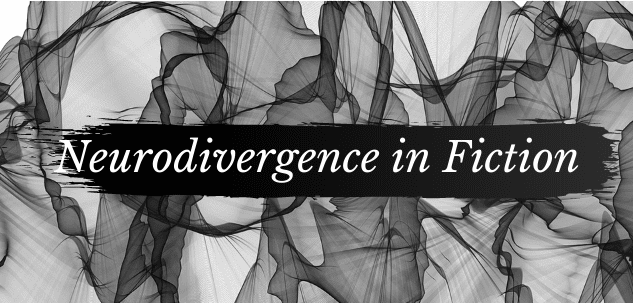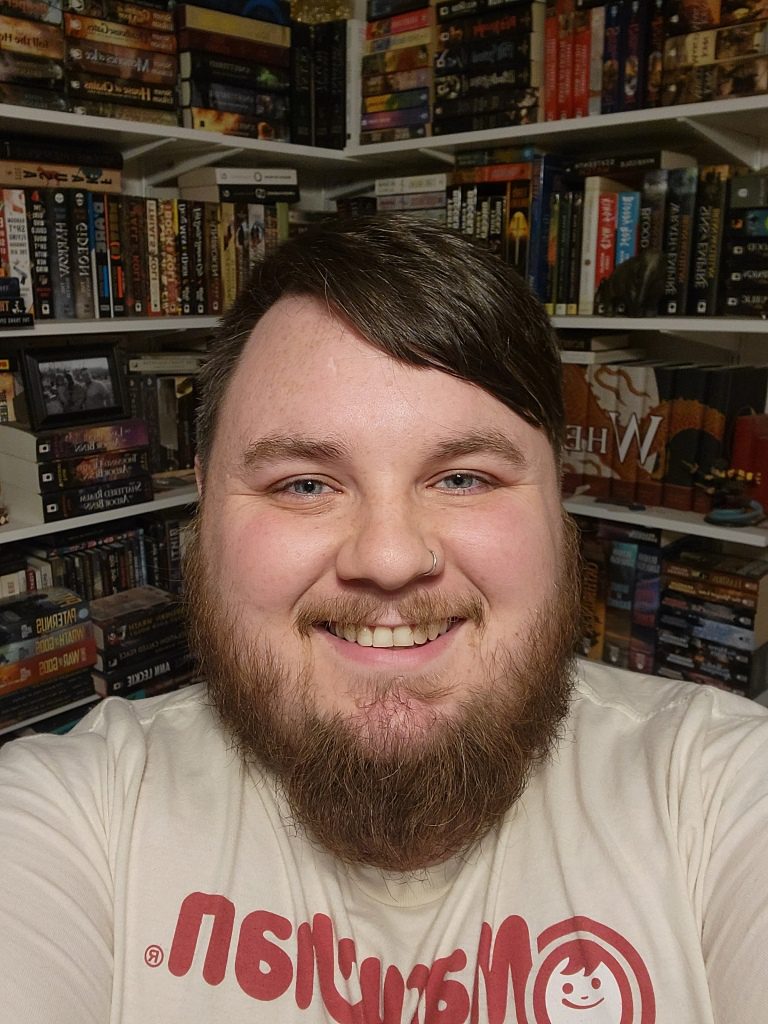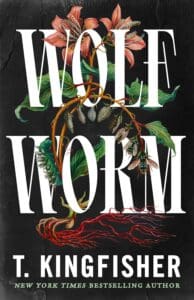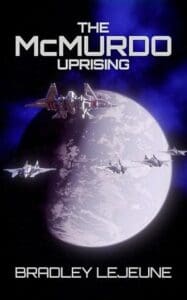
Hello all, and welcome to this week’s article for FanFiAddict’s series on Neurodivergence in Fiction. I cannot understate how appreciative I am for the overwhelming amount of support and enthusiasm I have seen for this series of mine; thank you! For the next several months we will be bringing you a guest post every Wednesday from a neurodivergent author. This will hopefully highlight some of the challenges that come with writing for a largely neurotypical audience, while also giving valuable insight to the craft itself and providing a window into the neurodivergent experience — at least through the lens of fiction.
This week, I am going to share an essay that I have been working on over the past weeks. This is the most intensely personal and difficult thing that I have had to write and I have been struggling on whether I should release it or not (hello, anxiety.) But, here she is. I hope you find something of value in this little piece of me that I offer.
As always, if you need to catch up on any articles, check out the landing page for the series here.
And, without further ado, here’s the article.
I have been writing essays such as this one in my head for as long as I can remember, I just didn’t recognize it for what it was. I was only very recently formally diagnosed with Autism and the weeks leading up it saw me hammered with some of the worst anxiety I’ve ever had. To give you a little background, during one of my monthly appointments, my primary psychiatrist mentioned that I may be autistic and referred me to the only Autism clinic servicing my area. At the intake appointment for the clinic, I was told that there was a one year long waiting list to be evaluated. That was fine, I understood. Then COVID happened and the waiting list was suddenly much longer. All told, it took just over two years to get a formal diagnosis after my psychiatrist informed me of her suspicions.
I never really thought I had autism. Autistic people can’t function, right? They’re all tantrums and yelling. I am quiet and reserved. I’m not a genius, I just like to read. The propagation of these stereotypes in society is so pervasive that I couldn’t even recognize something so critical about myself. Sometimes it’s hard for me to accept that I have autism simply because I am afraid to confront the fact that autism almost always means lesser. Even a cursory glance at autistic characters in media will yield a plethora of individuals that look nothing like me but are the face of autism to the world. Forrest Gump, Sheldon Cooper, the list goes on and on, and none of them are characters that make you want to be them. There’s hardly a politically correct term used to describe Forrest Gump in the movie and all anyone thinks of Sheldon is that he’s an asshole. Popular culture informs the masses how we should think about certain topics. The age-old response after telling someone you’re autistic is, “Oh, so you’re like Rain Man!” While Rain Man is, perhaps, a factual representation of autism, you now have people basing their view of the entire autism spectrum from this one character who has as an extremely rare condition. When we cry for representation, we cry for good representation. Spectrum is, perhaps, the word most associated with Autism, and for good reason. We’re not all the same, yet here we are so often boiled down to the genius or the fool.
When my psychiatrist told me two years ago that she thought I might be autistic, I started researching it and based on my findings I assumed that I was as well. Something that, looking back, seems so obvious. From Googling “Autism Spectrum Disorder” to taking the Autism Spectrum Quotient Test (I scored a 43/50. Go me.) everything was slowly falling into place. Trouble creating and maintaining relationships? Check. Misunderstanding social cues? Check. All-absorbing interest in specific topics? Check. In hindsight, the signs were all there, but still there was this image of autism that had been painted for me and it looked altogether different than what I saw in the mirror.
So, in the weeks leading up to my diagnosis, I had two thoughts going through my head. The first was, “Oh, shit. What if I am not autistic?” I have put a lot of hard work into the Neurodivergence in Fiction series, and it was something that I was happy to do as I was building an identity as an autistic person. I had this overpowering fear that all of a sudden, I would be a fraud—that I would be taking space from a truly autistic person and that my voice shouldn’t be added to a discussion that I didn’t belong in.
The second thought I had was, “What if I am autistic?” This is the most troubling to me and it’s something that has stuck with me over the past few weeks and has really been begging for me to speak about. It wasn’t until very recently that I had ever a.) read a good portrayal of an autistic character and b.) deeply connected with a character. All the examples that I can think of portray autistic characters the same way, you’re either a savant or you’re a burden. And I’m no savant, folx.
I have been reading SFF for 25+ years now and it breaks my heart that I have only recently found myself so clearly echoed in fiction. When the narrative told by pop culture is that neurodivergent people add no value to society then how am I supposed to reckon with my diagnosis? I already know that I add little value, economically speaking. I struggle to hold down jobs because I am in turns bored by the tedium or overwhelmed by social interaction. I am uneducated, having dropped out of high school because I couldn’t stand to go the extra semester it would have taken to graduate. It’s hard for me to have hopes and dreams because I have no prospects. There’s nowhere for me to fit in in a world that bases a person’s worth on their ability to contribute to the economy.
Historically, I have turned to video games and reading for comfort. Both have been a means of escapism throughout my life and I know with absolute certainty that I would not have made it this far if it weren’t for both of these things. When I was younger, I would escape to the woods behind my house and read until I couldn’t see the pages anymore, nestle down into a bed of pine needles, and sleep until morning; or, I’d walk a few miles to a friend’s house and hunker down to play video games for a weekend. My pre-teen/teen years were full of terror and freedom and both things have left an indelible mark on me. In school, I was the weird kid toting around 700-page tomes with muscle-bound dudes and scantily clad women on the covers, sitting alone at lunch and reading in between bites. My role models were the heroes I found in the pages and my sense of right and wrong was heavily influenced by the stories I read. Social situations have always been difficult for me, so I learned how to react and respond to certain social cues from books and video games. Social situations are tricky and unpredictable, but here are these clearly defined rules for how you should respond to a nearly infinite number of scenarios. Even still, I was emulating what I thought I should be, creating role models out of the heroes I read about or played on screen. I still hadn’t found a hero that looked like me.
There are plenty of characters in fiction that are coded as Autistic, meaning they display traits commonly associated with autism but are not formally given that diagnosis by the creator. There are, of course, Spock and the rest of the Vulcans from Star Trek and, more recently, Murderbot from Martha Wells’ wonderful series The Murderbot Diaries. While plenty of autistic people, myself included, have come to relate to these and other coded characters, they are still portrayed as alien or other. Coding has its place, and I can’t argue that there won’t always be reasons that a creator may not want to explicitly write a character as Autistic, or any other marginalized group for that matter. However, the fact that we are spoken of in hushed tones, with sideways glances, doesn’t have to be reflected so clearly in media. Coding can truly be stifling, a double-edged sword of “Eat your scraps and be satisfied,” where we’re given what is offered and told to be grateful for the honor. But, in a time where Autistic people are literally undergoing government-sanctioned torture by electric shock, what we don’t need is to be reminded of our otherness. Where are the autistic heroes? Where is the character that I can look up to not to wish I could be normal like them, but the one that makes me love being me? How am I supposed to have the courage to live my truth unafraid when creators worry that their characters will be hated for being like me?
It wasn’t until two of my most recent reads that I was able to do this, that I found myself in the pages of a book. Since first joining Book Twitter and FanFiAddict earlier this year, I have had my first interactions with other autistic people and in doing so I have learned a ton about myself. My good friend and co-blogger here at FFA, C.M. Caplan, released his debut novel, The Sword in the Street, earlier this year and it absolutely blew me away. The honesty with which he wrote the character Edwin is magical. Edwin, like Caplan himself, is Autistic and the portrayal of his autism was so brazenly honest that I couldn’t help but notice the similarities between myself and Edwin. Edwin loves his boyfriend deeply, but he doesn’t always pick up on the little social cues that John gives, which leads to a lot of tension between the two. It is masterfully written and reminds me of my own difficulties with forming and maintaining relationships.
Shortly after reading The Sword in the Street, I finally got around to reading the much-lauded Dragon Mage by ML Spencer, another autistic author who wrote a main character that I could fully relate to. In Dragon Mage the main character, Aram, is bullied for being different. He is obsessed with knots and spends his days dreaming of becoming a sailor and learning every knot in the world. Aram is unabashedly himself and still gets to be the hero. He stims and misunderstands social cues, and even so, because of his unique way of viewing the world, he has the power to save it.
I don’t think I ever realized that I was missing out on autistic representation in SFF. The characters in those stories are heroes, they’re above and beyond what someone like me could ever hope to become, right? Maybe so. But, in the cases of Edwin and Aram, I found a little piece of myself staring back at me from the pages of the books they inhabit. Instead of being shown as the pinnacle of humanity, something we should all aspire to, they are raw and honest portrayals of autism. They reflected the hero that is already in me and that’s why representation matters. Not as some arbitrary box you can check to say that your story is diverse, but so that those that look like you or me can imagine they too are special for being just who they are.
About the Author

Justin Gross is a lover of all things SFF and has been an avid reader since he was three. He is attempting to build the world’s largest private library (not really, but ask his wife and she might agree). Justin is always excited to gush over his favorite reads, which more often than not are also his latest reads. His likes trend toward sweeping epics, with complex characters and even more complex plots. Until recently he was totally against romance, but certain books have shown him that it can be done well. He currently has a love/hate relationship with grimdark.
Follow him on Twitter, Instagram, and Goodreads! All of his blogging stuff can be found here on FanFiAddict!



Love this, man!
Thank you so much, David!
Fantastic post, Justin. As always, this remains my favorite blog feature
Maybe I will try to take a look at The Sword in the Street or Dragon Mage. I’ll definitely preview first … To be honest, while a lot of what’s consider autistic definitely does not describe me, some of it really does. For example, if I’m trying to be some one’s friend, let’s have a long conversation about the things that interest us, yes. I don’t want to talk about whatever superficial topic I don’t care about … tell me about your interests, and I will tell you about mine! I see questions on Twitter like, “What’s one topic you could talk for half an hour on without prep?” and my brain goes, “One topic? There are so many I don’t know which one to pick!” It might not be a good talk, and I’m more of a good writer than I am of a good talker, but I could do it. Goodness, I don’t mind talking to someone for about half an hour about what I think about some topic that interests me. Then I’ll listen to the other person talk for just as long. And then repeat. But small talk is boring.